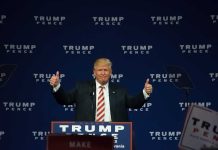
The Biden administration proposes a sweeping ban on Chinese-made vehicles, citing grave national security concerns that could reshape the automotive landscape.
At a Glance
- U.S. Commerce Department plans to ban Chinese software and hardware in connected and autonomous vehicles starting from 2027 model year.
- Concerns include potential data collection on U.S. drivers and infrastructure, and foreign manipulation of connected vehicles.
- The ban would apply to vehicles with certain Bluetooth, satellite, and wireless features, as well as highly autonomous vehicles.
- A 30-day public comment period will be allowed before finalizing the rules.
- Few Chinese cars are currently imported to the U.S., but concerns exist about potential assembly plants in nearby countries.
National Security Concerns Drive Proposed Ban
The Biden administration is taking a bold stance against potential threats to national security by proposing a comprehensive ban on Chinese-made vehicles. This move, spearheaded by the U.S. Commerce Department, aims to prohibit Chinese software and hardware in connected and autonomous vehicles starting from the 2027 model year. The proposal stems from growing concerns about data collection on American drivers and infrastructure, as well as the possibility of foreign manipulation of connected vehicles.
Commerce Secretary Gina Raimondo has been vocal about the risks associated with Chinese technology in U.S. vehicles. The administration’s concerns extend beyond mere data collection, encompassing potential espionage and the vulnerability of critical infrastructure to foreign interference. This proposed ban is part of a broader strategy to counter technological threats from nations like China and Russia, reflecting the administration’s commitment to safeguarding American interests in an increasingly connected world.
US Carmakers are being dealt another blow by the Biden Administration, a ban on Chinese software & hardware in connected vehicles. US carmakers are already years behind Chinese EV technology, and if this legislation comes into effect it will make matters even worse for them, as… pic.twitter.com/lKLpXaBuzz
— Barrett (@BarrettYouTube) September 22, 2024
Scope and Implementation of the Ban
The proposed ban is far-reaching, covering vehicles with certain Bluetooth, satellite, and wireless features, as well as highly autonomous vehicles. It would apply to all vehicles on U.S. roads, with exceptions for agriculture and mining vehicles. The prohibitions would take effect in the 2027 model year for software and in January 2029 or the 2030 model year for hardware, giving automakers time to adjust their supply chains and technologies.
“You can imagine the most catastrophic outcome theoretically if you had a couple million cars on the road and the software were disabled,” she said.
The administration plans to allow a 30-day public comment period before finalizing the rules, acknowledging the need for industry input. Major automakers have already voiced concerns about the challenges of changing hardware and software due to extensive pre-production processes, highlighting the complexity of implementing such a ban.
Broader Implications and Industry Response
This proposed ban is not occurring in isolation. It follows recent actions by the Biden administration, including steep tariff hikes on Chinese imports and a 100% duty on electric vehicles. These measures collectively signal a hardening stance against Chinese technological influence in the U.S. automotive sector. The European Union is also investigating Chinese subsidies for electric vehicles, indicating a global trend of scrutiny towards Chinese automotive technology.
“China’s policies could flood our market with its vehicles, posing risks to our national security,” Biden said earlier. “I’m not going to let that happen on my watch.”
While few Chinese cars are currently imported to the U.S. due to existing tariffs, there are concerns about Chinese companies potentially setting up assembly plants in nearby countries to circumvent these restrictions. This highlights the complex nature of global supply chains and the challenges in implementing such bans effectively.
Biden admin is mulling a ban on Chinese smart car software in spiraling trade spat
The Biden administration is peddling security concerns as it moots a ban on Chinese-made software in connected and autonomous vehicles, Bloomberg reports.
Proposed phased-in regulations would… pic.twitter.com/hboEVAZ97F
— Sputnik (@SputnikInt) September 22, 2024
Looking Ahead
As the Biden administration moves forward with this proposal, it’s clear that the intersection of national security and automotive technology will remain a critical focus. The proposed ban represents a significant shift in policy that could reshape the future of connected and autonomous vehicles in the United States. As the 30-day comment period approaches, all eyes will be on the industry’s response and the potential impacts on innovation, trade relations, and national security.
“Imagine if there were thousands or hundreds of thousands of Chinese-connected vehicles on American roads that could be immediately and simultaneously disabled by somebody in Beijing,” Raimondo said. “So it’s scary to contemplate the cyber risks, espionage risks that these pose.”
As this situation unfolds, it will be crucial for American consumers and industry stakeholders to stay informed about these developments and their potential implications for the automotive market, personal data security, and the broader U.S.-China relationship.
Sources:
- US to propose ban on Chinese software, hardware in connected vehicles
- Biden orders US investigation of national security risks posed by Chinese-made ‘smart cars’
- Biden administration will investigate national security risks posed by Chinese-made ‘smart cars’
- Biden Administration to Prepare Ban on Chinese Car Software
- US to propose ban on Chinese software, hardware in connected vehicles









